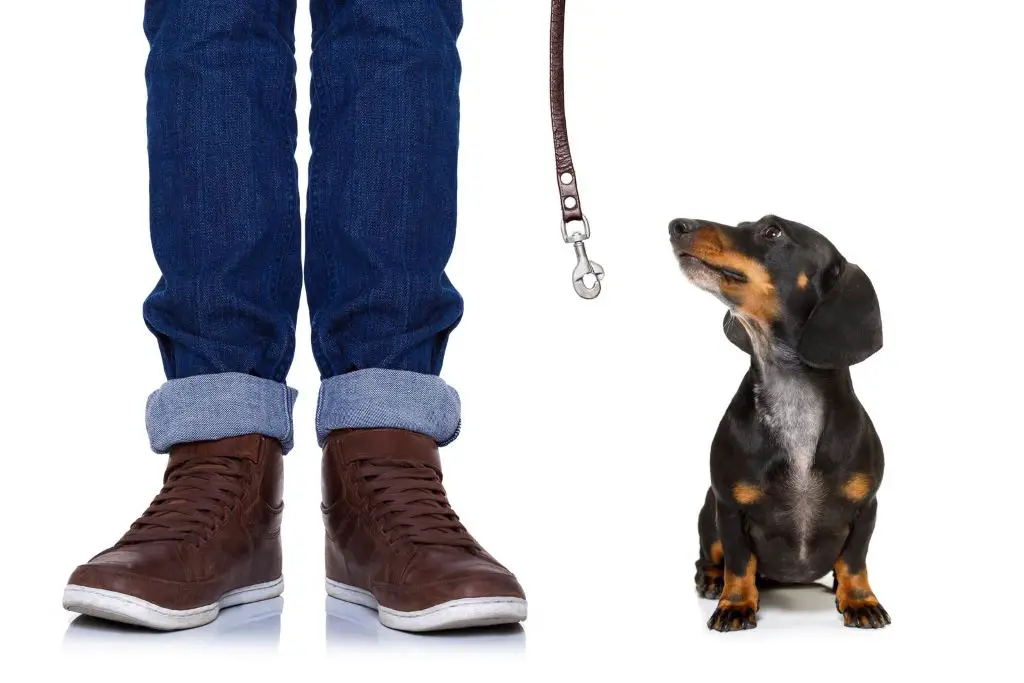Warning: Trying to access array offset on value of type bool in /home/u778996160/domains/dachshundtalk.com/public_html/wp-content/plugins/wp-word-count/public/class-wpwc-public.php on line 123
Warning: Trying to access array offset on value of type bool in /home/u778996160/domains/dachshundtalk.com/public_html/wp-content/plugins/wp-word-count/public/class-wpwc-public.php on line 123
Dachshunds (DAKS-HUND) are one of the most popular canine breeds due to their vibrant and friendly personality. These loyal companions were originally bred in Germany to hunt badgers. Their trademark is the short legs and long bodies that come with a big personality. Miniature dachshunds range from 5-6 inches tall, and their standard counterparts range from 8-9 inches tall. The average life expectancy of dachshunds range from 12-16 human years. A hot topic regarding this cute breed is whether they need to be raised in pairs.
Dachshunds are full of energy and were originally bred to be watchdogs and hunters. They have above-average playfulness and are good with kids and strangers alike. A major concern that comes with having a dachshund is to avoid disc damage from the pressure weight can induce on their long back. Their anatomy is not meant for lots of running, so the owner must take precautions to care for these happy dogs. Although this breed is known for its friendly nature, hidden underneath is their stubbornness and independence. This makes many owners wonder whether this breed should be raised in pairs with a dachshund puppy, or another dog breed sibling.
Are dachshunds better in pairs?
Overall, as social dogs with a need for great attention and high tendency to develop separation anxiety, experts believe that these dogs work better in pairs. We all need a shoulder to rely on. Dachshunds tend to whine when the owner is not home, so having a fellow dog friend at home to play together and entertain each other is highly recommended. This breed is one of the most social canine breeds, so constant interaction is their oxygen.
The proper way to introduce their partner is to first have one separate from its litter and adopt another after the first one settles. A reason behind this is that dachshunds can develop littermate syndrome, which is when two littermates become overly attached to each other and cannot become interested in anyone else, including their owners. This shows just how much attachment dachshunds develop. This is a concern, but this does not mean that siblings cannot be in healthy relationships. With proper attention and training, dachshund sibling pairs make a great family pet.

Do dachshunds like having another dog?
As for this social breed, they will mostly benefit from the introduction of a dog friend. They will gain a playmate and someone to infinitely cuddle and entertain. The only concern for the owners will be the increase in cleaning and costs, which a proper pet owner already assumes and plans for in the beginning. There is also always a risk that two dogs do not get along, which is why the initial introductory phase must be taken under careful care and observation. However, as social breeds, there is a great chance that your pet will benefit from having a friend at home. They have above-average playfulness and are good with kids and strangers alike. Dachshunds remain hungry for social interaction and require high levels of attention.
The age difference between the two dogs should be less than five years apart and more than 8-12 months apart to match each other’s energy levels and provide sufficient time to form a lasting bond. The pairs should either be of different genders, or two males. Two female dachshunds are less compatible with each other than two male dachshunds. Having the dogs neutered should not be performed too early, as it can increase their chances of developing back problems later.
Going into detail on how to introduce the two dogs:
As dogs are territorial, it is best to introduce the dogs in an outside setting where the first dog has not already claimed ownership. The younger the second dachshund or dog breed is, the higher are the chances of acceptance due to their flexible personality. Within the household, each puppy or dog should have its own crate, bowl, toy, and playpen to avoid fighting. When feeding the two dogs, each should be fed separately under supervision. Each dog should be made known of love by designating separate one on one time with the owner. After initial adjustment, team bonding can be established in a bigger social setting such as a dog park.
What dog goes well with a dachshund?
Other than themselves, there are certain recommended breeds, also known for their friendly nature compatible with dachshunds:
- Beagles
- Boston Terriers
- French Bulldogs
- Golden Retriever
- Labrador
Do dachshunds get lonely?
Dachshunds have a high tendency to develop separation anxiety as social animals. Dogs and humans alike are social animals who have emotional needs, and when the dog is not met with enough care and time, the likelihood of developing depression is high.
Dachshunds tend to bond easily from interactions with humans and their own kind. Separation from an established bond causes this emotional breed to develop anxiety and depression.
Certain ways to tell whether your dachshund is lonely is from their behavior, such as:
• Rebellious behavior such as destroying furniture and belongings
• Over-the-top whining and barking
• Aggressive behavior towards the owner
• Low appetite and energy levels
Also, it is important not to expect that the separation anxiety of a pet can be immediately fixed with another dog. If the root problem of the dog’s loneliness or depression is the absence of love and proper care of an owner, getting more dogs as a remedy will only add to irresponsibility.
The big takeaway to answer the question: Do dachshunds need another dog?
Overall, dachshunds work better in pairs as highly social animals. The dogs should be introduced to each other at a relatively early age and be given enough individual attention. As for all pet companionship, the owner must consult with vets and trainers and allocate time and resources to care for pets that make up a significant part of our lives. Another dog will most likely help dachshunds, but depending on the care and love of the owner, a partner is not necessary. Just understanding the emotional needs of dachshunds alone and giving them enough attention will suffice their needs.
A favorite quote I would like to share as a dog owner is that a dog may be part of your life, but to a dog, you make up their entire life.








